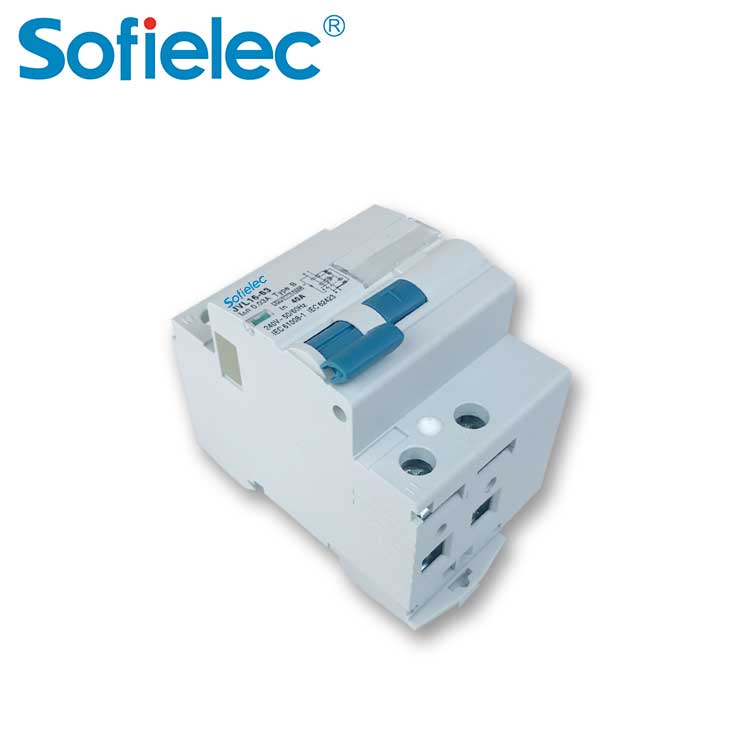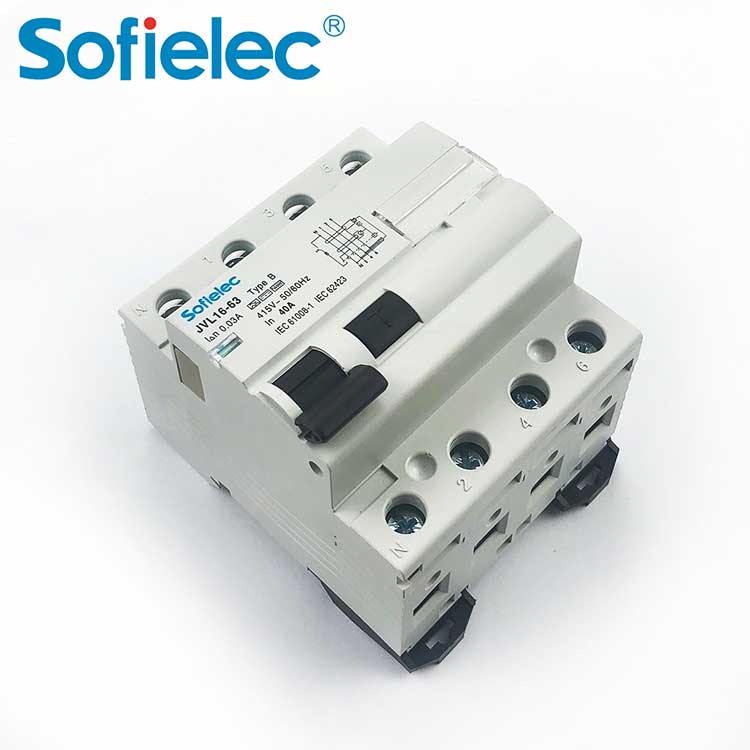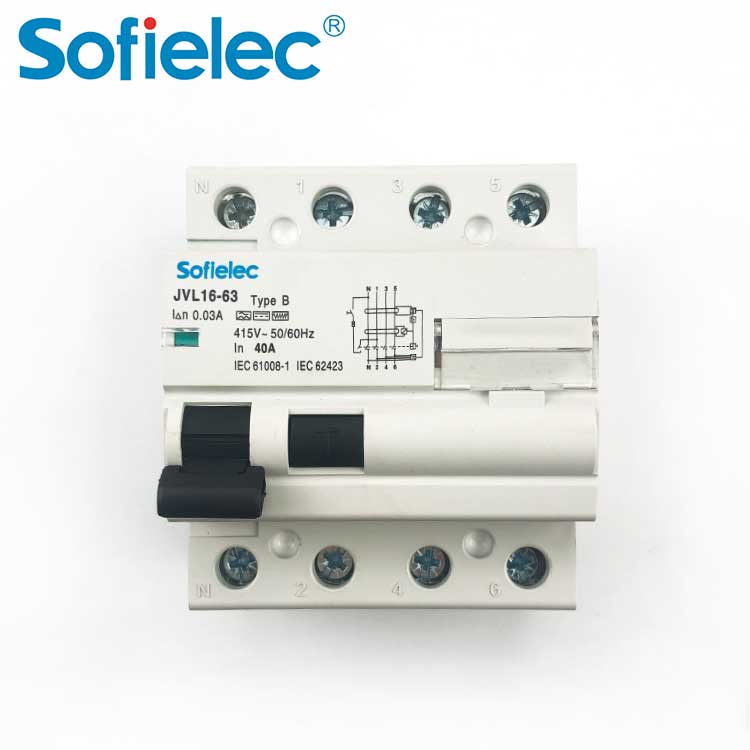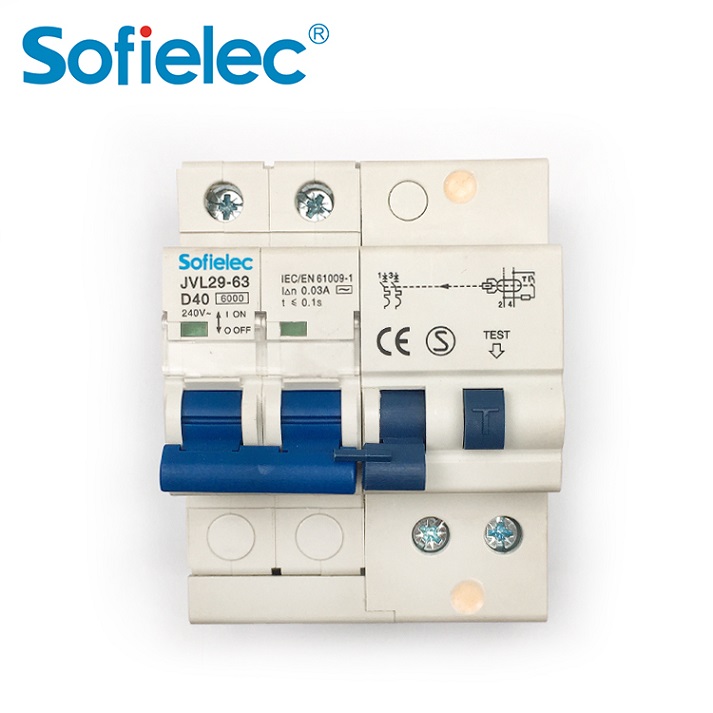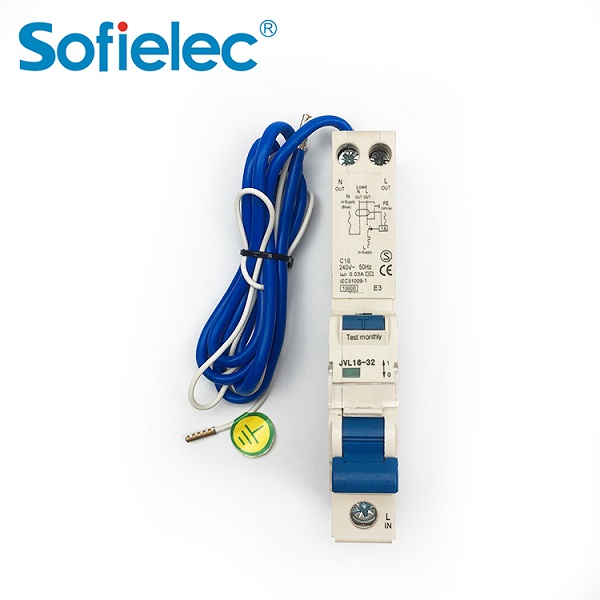Type B RCD (Residual Current Device) for EV (Electric Vehicle) and PV (Photovoltaic) applications with the following specifications: 10kA breaking capacity, 4P (4 pole), 63A rated current, this type of RCD is intended for electric Car charging and photovoltaic systems provide leakage and fault current protection. This is important to ensure the safety of electrical installations and their connected equipment.
B type RCD for EV,PV application 4P 63A Technical Data
| Rated operating segment capacity | 10In A |
| TYPE | Auxiliary electromagnetic |
| Residual current characteristics | B |
| Pole No | 1p+n,3p+n |
| Rated current(A) | 25, 40, 63 |
| Rated voltage | 230(240)1400(415) |
| Rated frequency | 50/60Hz |
| Connection height | 19mm |
| Mechatronics life | 4000 cycles |
| Tightening torque | 2.0Nm |
| Enclosure rating | IP20 |
B type RCD for EV,PV application 4P 63A Features
Elegant appearance; cover and handle in arc shape make comfortable operation. Contact position indicating window
Transparent cover designed to carry label.
In case of overload to protected circuit, RCBO handle trips and stays at central position, which enables a quick solution to the faulty line. The handle cannot stay in such position when operated manually.
RCBO handle can be locked either at “ON” position or at“OFF” position to prevent unwanted operation of the product.
Provides protection against earth fault/leakage current, short-circuit and overload
High short-circuit capacity
Provides complementary protection against direct contact by human body.
Effectively protects electric equipment against insulating failure
Contact position indication
Provides protection against over-voltage
B type RCD for EV,PV application 4P 63A Overall & Installation Dimensions
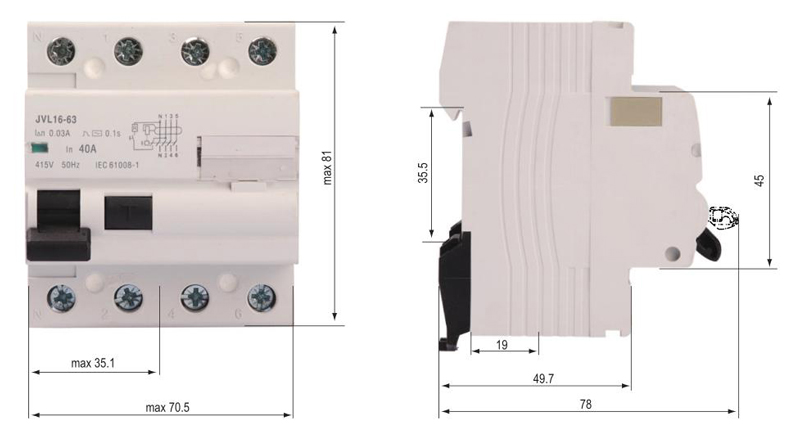
B Type RCD for EV,PV Wiring Diagram
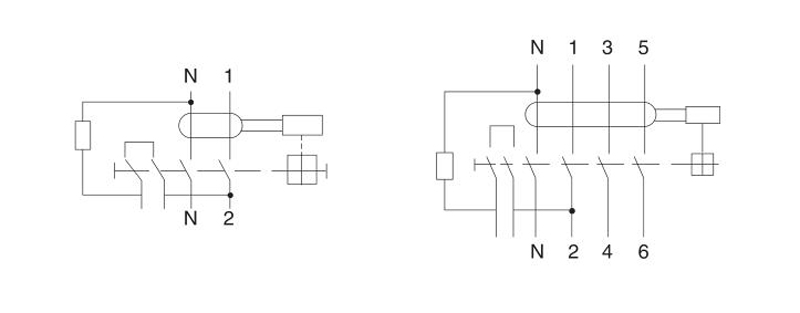
B type RCD for EV,PV application 4P 63A Video
B Type RCD for EV,PV Picture
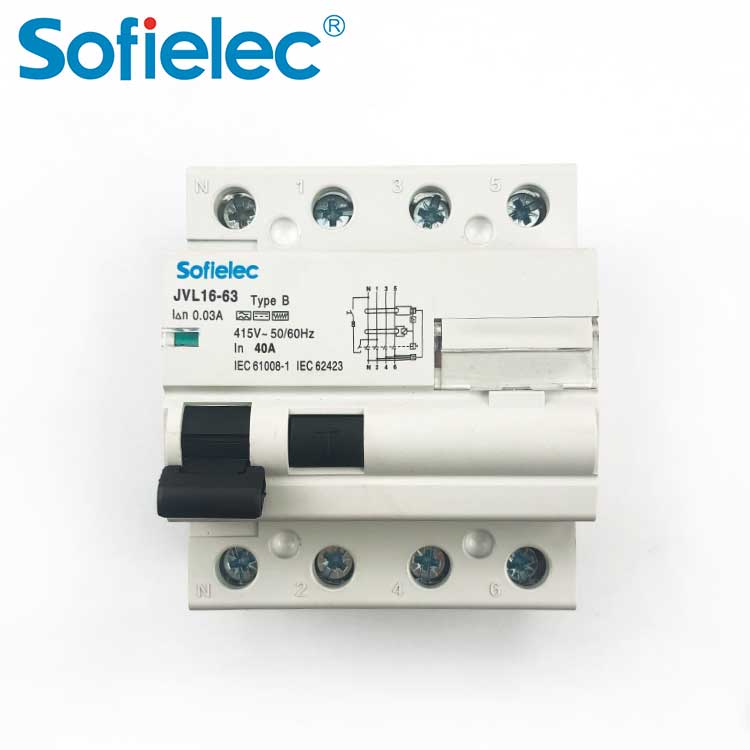
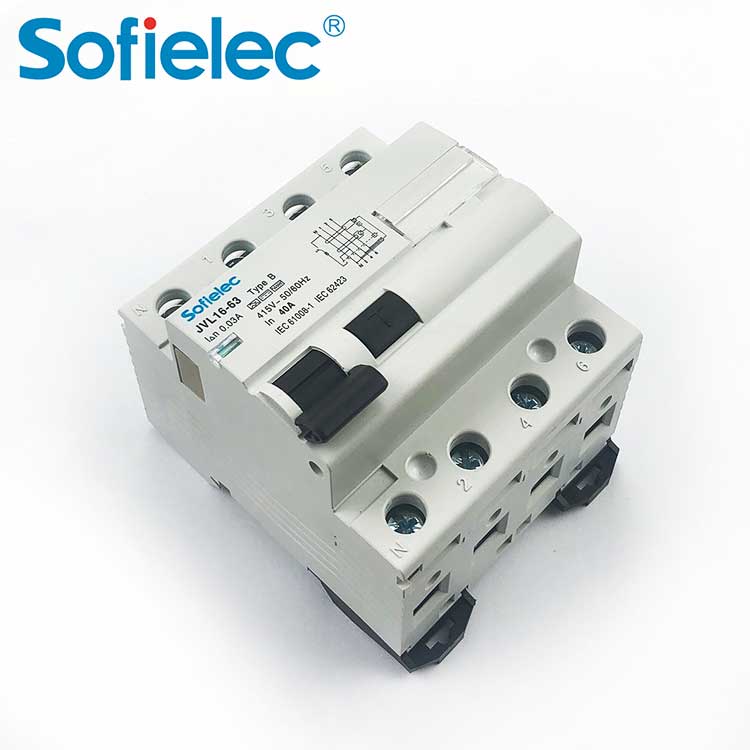
Construction and Feature
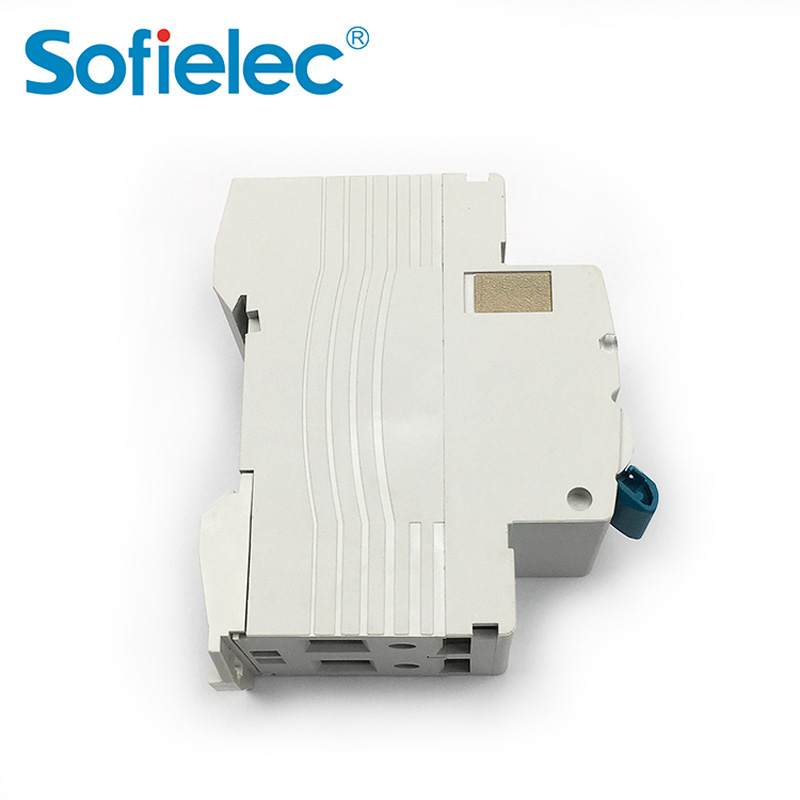
Tags:B type RCD,RCD EV,63A RCD,63 Amp RCD,4P RCD,RCD 4P
> What are the four types of timer switches?
A time switch, often simply referred to as a timer, is a device that automatically controls when an electrical circuit is turned on or off. It's like a programmable ...
> Can You Replace a 10 Amp Breaker with a 20 Amp Breaker?
Replacing a 10-amp circuit breaker with a 20-amp one without a thorough professional evaluation is extremely dangerous and poses a significant fire hazard. Let's ana...
> What Makes a Circuit Breaker Essential for Home Electrical Safety?
Home electrical safety ranks high on every homeowner’s priority list, yet many overlook the quiet workhorse that prevents crises before they start. This device acts ...
> What Scenarios Require the Use of a Residual Current Circuit Breaker?
Electrical safety is a top priority in daily life and work, yet many people are unsure when to use a device that guards against electric shock. This article explains...


